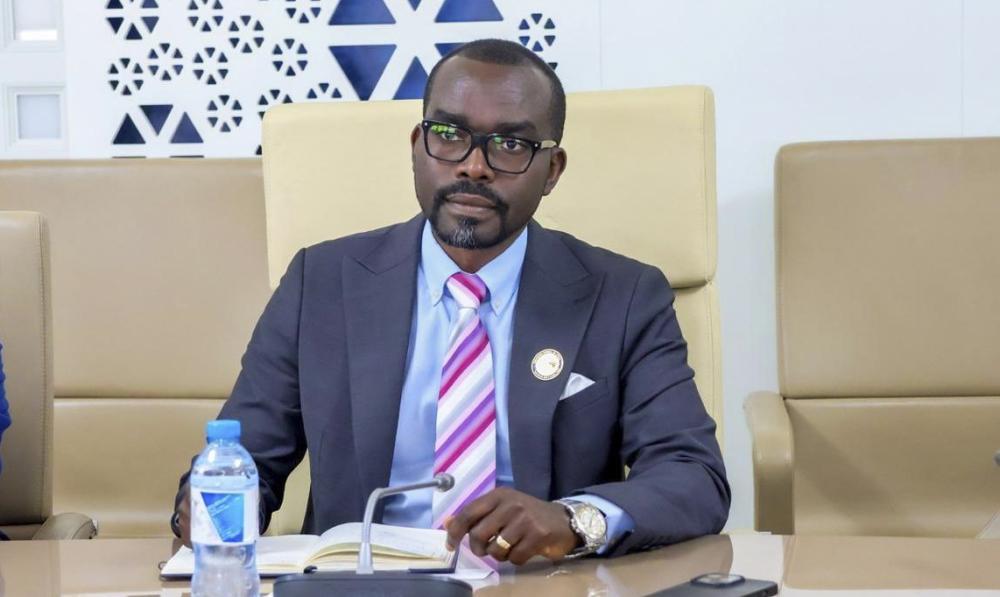Africa-Press – Rwanda. The government is stepping up efforts to boost the export of services by enabling local providers to access and expand into regional and global markets, according to the Minister of Trade and Industry, Prudence Sebahizi.
“We have developed the National African Continental Free Trade Area (AfCFTA) Implementation Strategy and its Green Supplement, both of which prioritise trade in services as a key driver for inclusive and sustainable growth,” Sebahizi said. “The ministry is also finalising a new trade policy to enhance digital trade and cross-border service exports.”
He added that the ministry, in collaboration with development partners, is conducting capacity-building sessions to improve traders’ understanding of market access conditions, export procedures, and regulatory requirements across AfCFTA and EAC markets.
Exploring new markets in Djibouti
Sebahizi noted that the ministry is carrying out market assessments in various regions to identify opportunities for Rwandan service providers and guide them on how to penetrate these markets effectively.
“For instance, a potential market assessment is underway in Djibouti to explore service export opportunities and strengthen Rwanda’s presence in the Horn of Africa,” he said.
Service exports have become one of Rwanda’s strongest economic pillars, contributing the largest share to the national GDP. Sebahizi highlighted that services such as ICT, tourism, logistics, and financial services play a key role in economic diversification and growth.
According to the National Institute of Statistics of Rwanda, travel and tourism services alone earned the country about $579.5 million in 2024.
“By exporting services across EAC, COMESA, and AfCFTA markets, Rwanda deepens regional integration and leverages preferential access, positioning itself as a hub for business and innovation,” he added.
Where Rwanda’s strength lies
Economic analyst John Bosco Kalisa stressed the need to intensify marketing of Rwanda’s service-oriented sectors across the region to increase export earnings and diversify destinations.
“Rwanda has strong comparative advantages in tourism and hospitality, transport and logistics, aviation, banking and insurance, professional and health-related services, as well as education,” he said.
He noted that Rwanda ranks second to Kenya in terms of diaspora remittances, driven by Rwandans investing back home.
“Our education sector, for example, attracts students from across Africa to universities such as Carnegie Mellon University Africa, the African School of Governance, and the African Leadership University. In the health sector, Rwanda is becoming a digital health hub and a model for universal coverage,” Kalisa said.
He called for increased investment in productive infrastructure, ICT skills, and a more conducive regulatory environment for service exports.
“We should make affordable finance available to service providers and offer incentives to attract investors in high-potential service sectors,” he added.
Regional integration still lagging
Denis Karera, Vice Chair of the East African Business Council (EABC), said the initiative “Leveraging Integration Frameworks for Trade in Services and Civil Society Organisations in the EAC” is building traders’ capacity to engage in cross-border services.
“The project focuses on rules, regulations, and business concepts to enhance regional participation. Airlines, consultants, and IT providers are already working across borders,” Karera said.
However, he pointed out that despite frameworks like the EAC Common Market Protocol, the movement of labour and services remains limited.
“Many professionals—lawyers, doctors, engineers, architects—still face restrictions. For instance, Tanzanian laws prevent non-citizens from working in certain sectors. Such protectionism weakens regional cooperation,” he said, noting that countries often hesitate to recognise each other’s qualifications.
“By overprotecting local jobs, countries also restrict their own professionals from accessing foreign markets. Engineers across East Africa have yet to mutually recognise qualifications despite years of negotiation,” Karera added.
He urged young professionals to seize opportunities in ICT, digital platforms, and cross-border markets.
“Rwandan accountants, for example, can offer audit services in Juba or Nairobi,” he suggested.
Karera criticised the slow implementation of the Common Market Protocol, noting that “after 20 years, it has been implemented at only about 25 percent.”
Local traders already expanding
Noel Nkurikiye, Head of Consultant Tarzan of Transport Rwanda (COTATRARWA), said Rwandan firms are beginning to bid for transport consultancy projects in the region.
“We see foreign consultants coming to Rwanda—we should also be exporting our expertise. But capacity building remains essential to bridge skills gaps,” he said.
Jacqueline Umuhoza, Head of Timtom Aviation, said her company has already exported air ticketing services to Goma, DRC, and plans to expand further.
“Our goal is to reach more countries. We need knowledge and platforms to help us tap into available opportunities,” she said.
For More News And Analysis About Rwanda Follow Africa-Press






